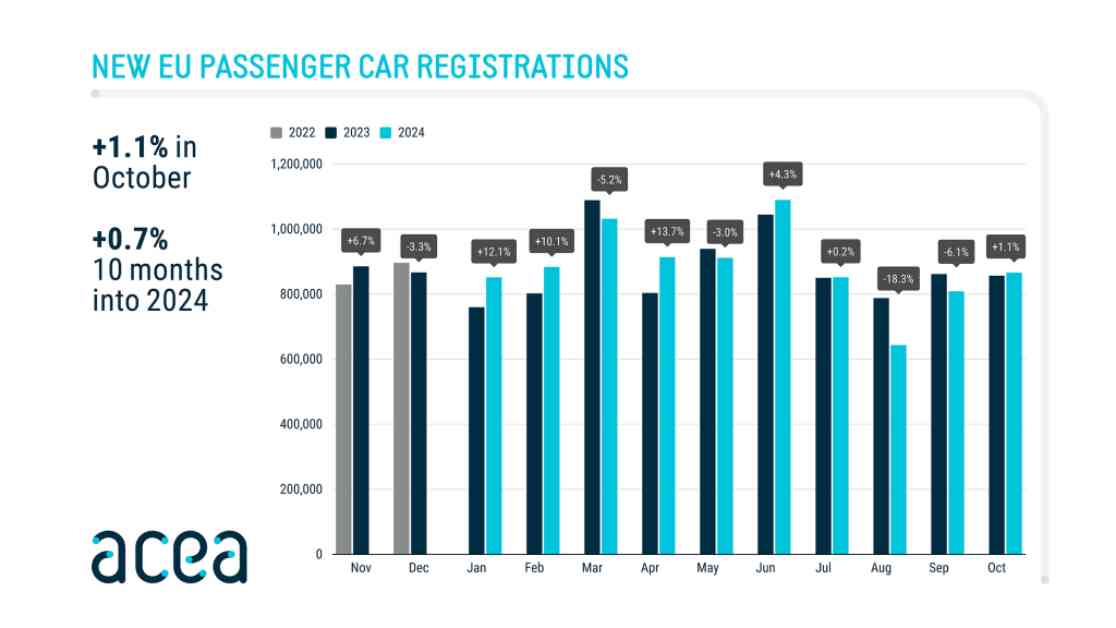In October 2024, new car registrations in the EU showed a slight increase of 1.1%, marking a positive turnaround from previous months. Spain led the growth with a strong 7.2% increase, while Germany also saw improvement with a 6% rise after three months of decline. However, France and Italy experienced decreases of 11.1% and 9.1% respectively.
Overall, the EU new car registrations remained stable with a 0.7% increase, totaling 8.9 million units so far in 2024. Spain and Italy showed positive performances with increases of 4.9% and 0.9% respectively. On the other hand, France and Germany saw declines of 2.7% and 0.4% respectively.
When looking at the power sources of new EU car registrations, the market share of battery-electric cars remained stable at 14.4% in October 2024. However, year-to-date volumes dropped by 4.9%, with the market share decreasing from 14% to 13.2% compared to the previous year. Plug-in hybrid car registrations also declined by 7.2% in October, with a market share of 7.7%.
Registrations of battery-electric cars increased by 2.4% in October to 124,907 units. Despite this monthly increase, the year-to-date market volume was 4.9% lower than the previous year. The decline was mainly driven by significant decreases in registrations in Germany. Plug-in hybrid car registrations also fell by 7.2% in October, with notable declines in France and Italy.
Hybrid-electric registrations, on the other hand, saw a significant increase of 17.5% in October, with a market share of 33.3%. This exceeded petrol car registrations for the second consecutive month.
In terms of petrol and diesel cars, petrol car sales dropped by 6.8% in October 2024. France experienced the largest decline, followed by Italy, while Spain and Germany showed more modest changes. Petrol cars now account for 30.8% of the market, down from 33.4% the previous year. The diesel car market also declined by 7.6%.
Overall, the EU automobile industry plays a significant role in the European economy, with 13.2 million Europeans working in the sector. It accounts for 10.3% of all manufacturing jobs in the EU, generating €383.7 billion in tax revenue for European governments. The industry also contributes to a trade surplus for the European Union and plays a crucial role in the GDP of the EU. Additionally, the industry invests heavily in research and development, with €72.8 billion spent annually, representing 33% of the EU total.

